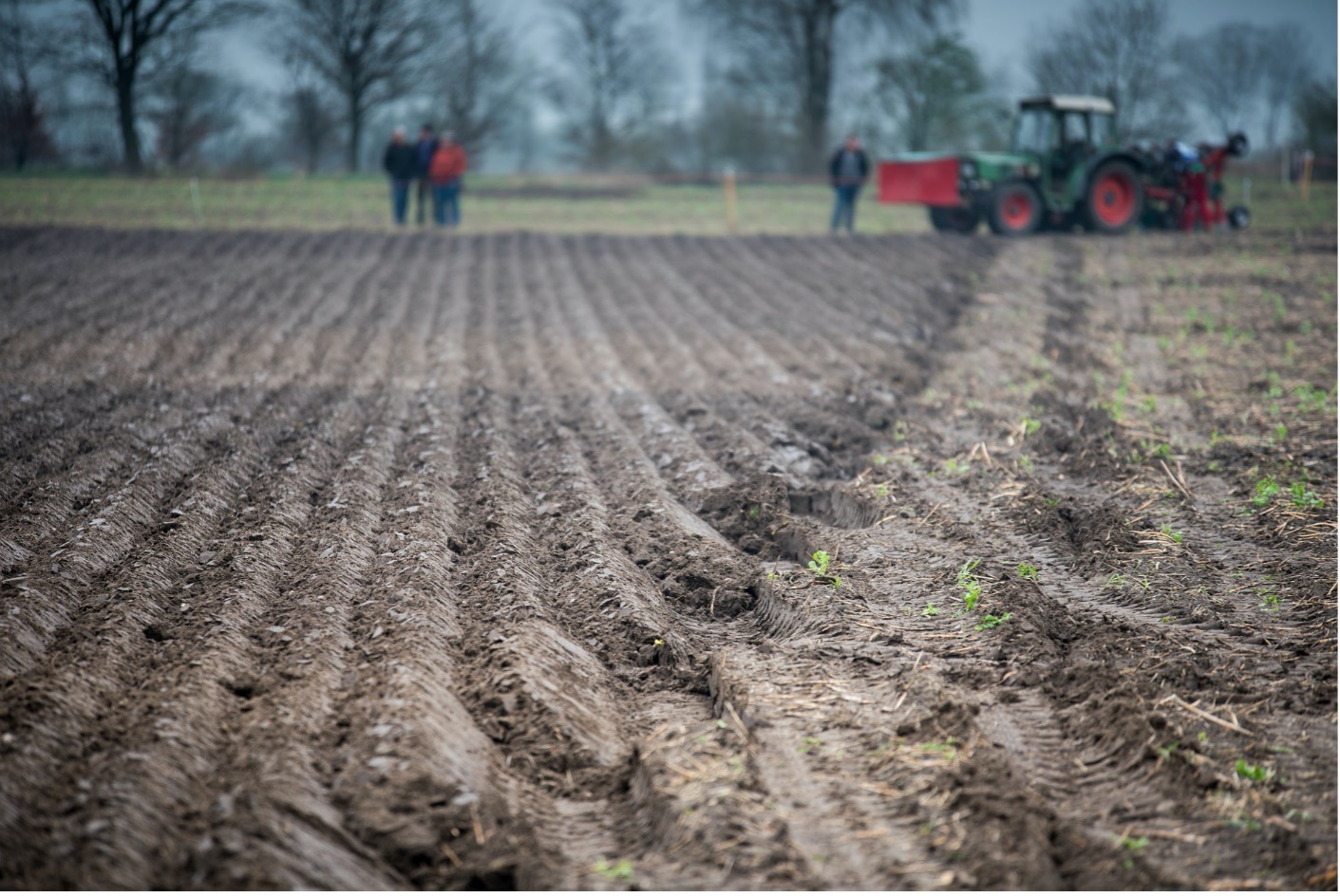 Plant Biology
Plant Biology
How roots help us fight against hard soils
Compacted, hard soil is a major threat to modern farming as it blocks plant roots growth and restricts water and nutrient acquisition. Engineered crop roots with a reduced ability to sense hard soils could provide a new way to create compaction resistant cereal varieties.

Soil is a vital commodity for food security - more than 95% of global food production depends on soil. Modern intensive farming practices help us to meet the growing demand for food today. On the downside, they often compromise the health of agricultural soils.
Increasingly heavy agricultural machinery, such as large tractors and harvesters, enhance compaction of the soil layers, making it hard for the roots to forage for their key resources. Compacted soil can act as a barrier to the root growth, reducing their surface area available to take up soil resources. Combined with other stresses, like drought, compaction can lead to yield losses of up to 75%.
A healthy soil contains a network of soil pores, which provide a way for gases to be exchanged from roots to rhizosphere. Rhizosphere is the area of soil where roots grow to absorb soil resources. When soil particles are pressed together the connection between the soil pores breaks down. Recently, we discovered that roots monitor for compacted areas using a gas called ethylene, which is a plant hormone. Ethylene is involved in many aspects of plant growth, for example, by signaling the presence of pathogens. When soil pores are well connected, ethylene is continuously pumped out from the plant roots and spreads out. However, when soil is compacted, ethylene cannot escape. Instead, it accumulates around root tips, where it acts as a STOP signal for root growth.
Our ‘light bulb’ moment for understanding how roots sense hard soil came from looking at images of compacted versus non-compacted soil, taken using a specialized X-ray machine. Comparing the two types of soil, we measured how fast ethylene was moving through the soil pores and confirmed our hypothesis: compacted soils effectively blocked spreading of ethylene, which was otherwise able to move through normal non-compacted soil.
We then wanted to understand what would happen if we cut off the ability of roots to sense ethylene. To do this, we took advantage of engineered plants lacking key components of the plant cell’s machinery, which help communicate that ethylene is present. These are the “ethylene receptors”, to which ethylene binds and signals its presence to the plant. By growing these engineered plants in compacted and non-compacted soils we discovered that plant roots unable to “sense” ethylene, were also unable to “detect” compacted soil and continued to grow normally. This was an amazing result as we were expecting that roots would not grow through the compacted hard soil. Our results revealed that plant roots can punch through hard soils, but normally elect to stop due to the accumulation of ethylene. This begs the question, why do plant roots normally choose to stop?
Natural soils are more likely to be composed of both hard and soft areas of soil. Extracting water and other resources from compacted soil is more challenging for the roots, compared to well-structured soil. Therefore, employing a STOP signal when encountering hard soils makes sense, as the plant can invest its limited resources into roots growing in more productive softer soils. Crops are growing in tilled fields, which contain a hard layer of soil below the ploughed layer. There, employing a STOP signal would cause the roots to struggle penetrating the subsoil, the layer of soil where more reliable sources of water and nutrients are available. Therefore, reducing the sensitivity of a crop to ethylene could offer the opportunity to access new valuable plant resources.
Can this new knowledge provide a novel breeding approach to generate compaction-resistant crop varieties? In principle, yes! Directly disabling the entire plant’s ability to sense ethylene may compromise its ability to respond to various stresses it will encounter when growing in fields. However, we anticipate that selectively disabling just the root tips ability to sense ethylene would pave the way to create novel compaction-resistant crops, without impairing the performance of the rest of the plant.
Original Article:
Pandey, B. et al. Plant roots sense soil compaction through restricted ethylene diffusion. Science 371, 276-280 (2021)Edited by:
Polyxeni Damala , Senior Scientific Editor
We thought you might like
One root for every soil: a double-personality tale
Sep 12, 2017 in Plant Biology | 3 min read by Laura LorenzoBuilding a community: Plants can choose their root’s neighbours
May 28, 2020 in Plant Biology | 3.5 min read by Ayala SelaThe yin and yang of lateral roots
Sep 8, 2020 in Plant Biology | 3 min read by Sascha Waidmann , Jürgen Kleine-VehnMore from Plant Biology
Unravelling the Secrets of Pine Roots: A Tale of Nutrition and Adaptation
Oct 20, 2023 in Plant Biology | 3.5 min read by Rafael Cañas , Francisco OrtigosaStressful memories help plants resist caterpillars
Oct 2, 2023 in Plant Biology | 3.5 min read by Samuel Wilkinson , Adam Hannan Parker , Jurriaan TonDecoding the genome of a jackfruit that grows all year round
Sep 6, 2023 in Plant Biology | 3.5 min read by Tofazzal IslamLife after logging: the tale of recovering tropical forests
Aug 21, 2023 in Plant Biology | 3.5 min read by Maria Mills , Terhi RiuttaEditor's picks
Trending now
Popular topics


